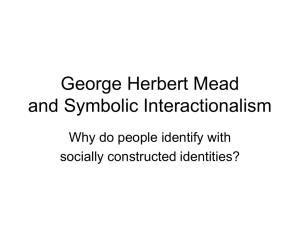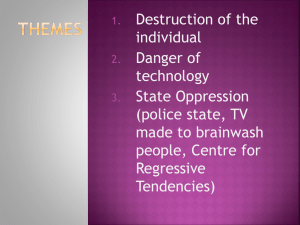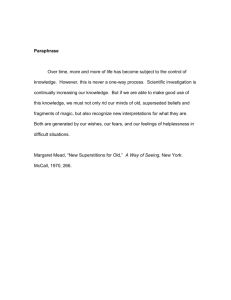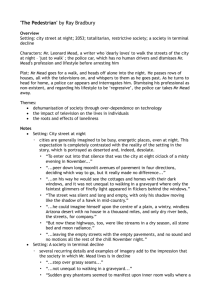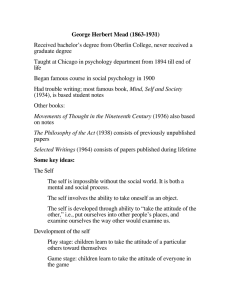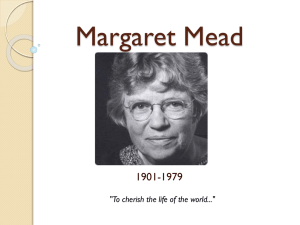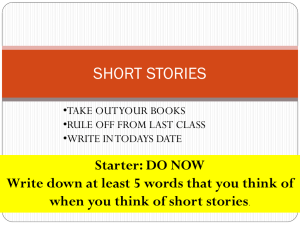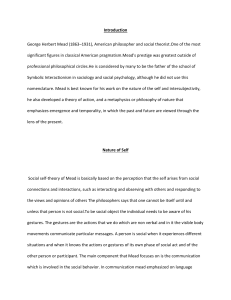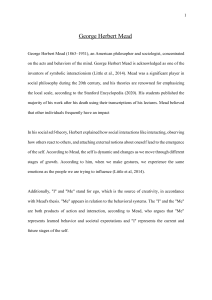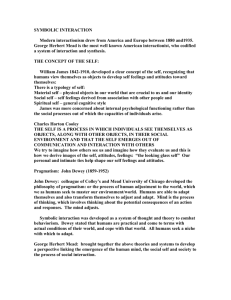George Herbert Mead 1863-1931
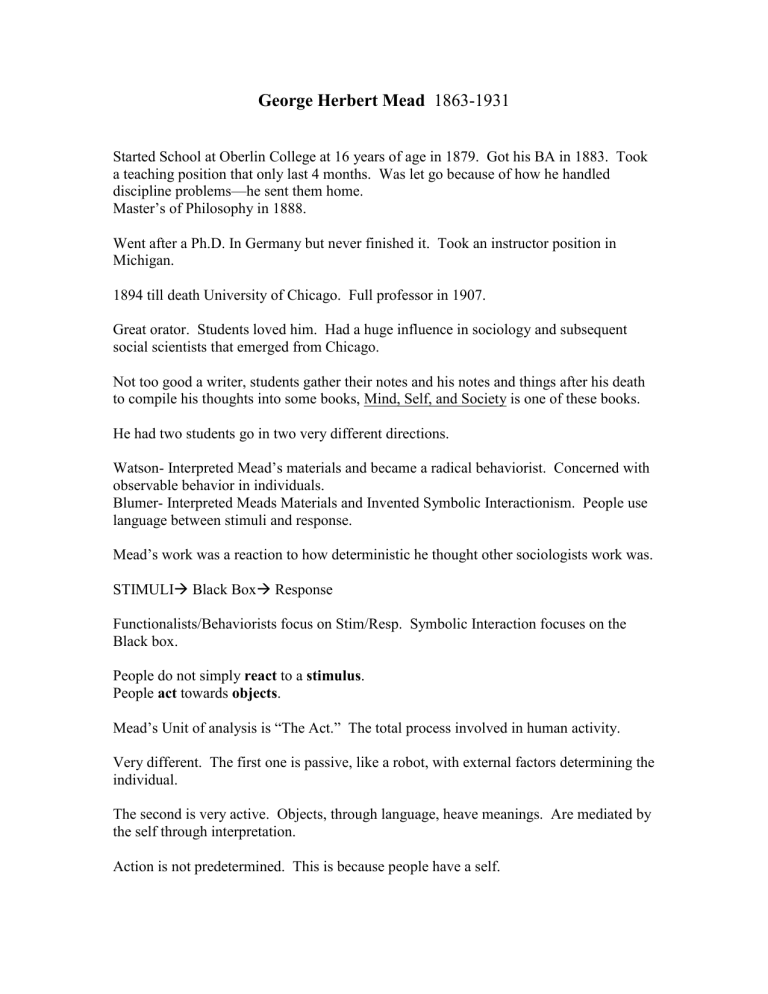
George Herbert Mead
1863-1931
Started School at Oberlin College at 16 years of age in 1879. Got his BA in 1883. Took a teaching position that only last 4 months. Was let go because of how he handled discipline problems—he sent them home.
Master’s of Philosophy in 1888.
Went after a Ph.D. In Germany but never finished it. Took an instructor position in
Michigan.
1894 till death University of Chicago. Full professor in 1907.
Great orator. Students loved him. Had a huge influence in sociology and subsequent social scientists that emerged from Chicago.
Not too good a writer, students gather their notes and his notes and things after his death to compile his thoughts into some books, Mind, Self, and Society is one of these books.
He had two students go in two very different directions.
Watson- Interpreted Mead’s materials and became a radical behaviorist. Concerned with observable behavior in individuals.
Blumer- Interpreted Meads Materials and Invented Symbolic Interactionism. People use language between stimuli and response.
Mead’s work was a reaction to how deterministic he thought other sociologists work was.
STIMULI Black Box Response
Functionalists/Behaviorists focus on Stim/Resp. Symbolic Interaction focuses on the
Black box.
People do not simply react to a stimulus .
People act towards objects .
Mead’s Unit of analysis is “The Act.” The total process involved in human activity.
Very different. The first one is passive, like a robot, with external factors determining the individual.
The second is very active. Objects, through language, heave meanings. Are mediated by the self through interpretation.
Action is not predetermined. This is because people have a self.
#Individuals have selves.
#Actions are constructed, not released.
#Collective action occurs when people take the role of the other or the role of the group and align their actions together.
From this standpoint, Methodologically on must take on the role of the other or the Unit to understand what is happening. Objectivity is not possible. PO Interviews.
Focus on Acting Units as opposed to structural factors .
The act is broken sown into 4 dialectically related components:
1.
Impulse- senses stimulated and the need to do something about it.
2.
Perception-search for and react to stimuli related to impulse. Perceiving the object makes it an object.
3.
Manipulation- take action regarding object, contemplate responses.
4.
Consummation- takes an action, which satisfies the impulse.
Gestures- See Blumer sheet.
Significant Gestures- requires thought before reaction takes place.
Vocalizing important. Hearing ourselves enables us to see ourselves as others might see us. We can stop speech. Not just a release. And you can take on the role of the other.
Thinking is an internal conversation.
Development of self.
Play stage Child takes on roles. Daddy, Mommy, warrior, teacher, sees self as an object.
Game stage takes on the role of everyone in the game. Roles have rules and definite relationship to one another.
Generalized other - can take on the role of the community. Allows for abstract thinking.
Essential for organizing group activity.
Multiple Gos Multiple selves.
To stand up to the generalized other, the individual must construct a larger generalized other.
